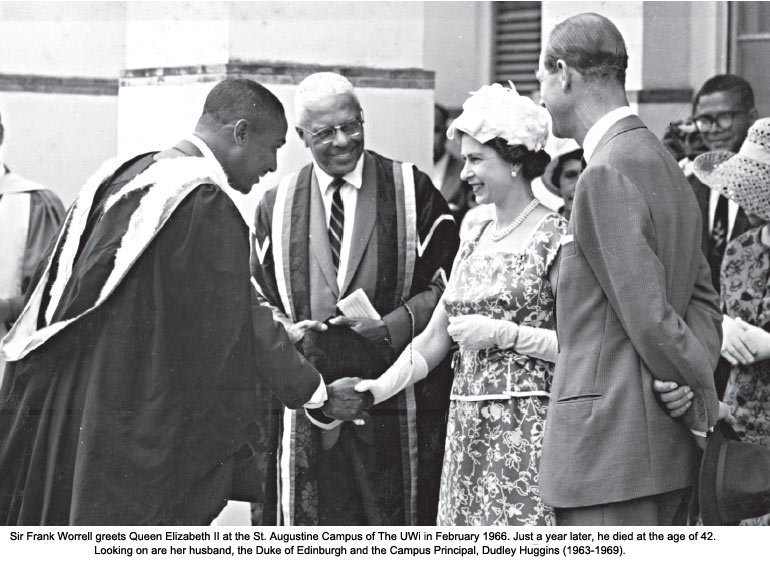 |
 |
 |
|
May 2014
|
As our Chancellor, Sir George Alleyne, lifts his voice in tribute with his feature address, Frank Worrell: Of Legends and Leaders, we are also pleased to offer our congratulations to the recipients of the Frank Worrell Noble Spirit Award: Mr Tony Cozier and the Rev Sir Wes Hall.
He was the tenth person to have been awarded a knighthood for services to cricket, an honour he received in 1964, one year after he retired from first class cricket. Included in that illustrious ten were Sir Pelham Warner for his administration in 1937 and Sir Learie Constantine for his public service in 1962—two men also of West Indian heritage. That the contributions of Sir Frank Worrell to world cricket were enormous was readily acknowledged, but this special award for service to cricket was meant to reflect the extraordinary nature of the man who would use his position as captain of the West Indies cricket team to build more than a cricketing unit, but to preach the gospel of fair play, competitive games and racial equity. Sir Frank was a committed regionalist, a ready and engaging diplomat and a leader so respected for his principled stands, that although he would never have been one to party with a posse, he was universally beloved and revered. If, as a member of the legendary trio of Sir Clyde Walcott and Sir Everton Weekes, he strode tall and imposingly on the cricket field, it was the dignified nature of his conduct off the field that set him apart. He changed the way the world viewed West Indians, and indeed, the spirit with which the game was played. The measure of world regard for him can be found in the simple fact that when he died, tragically early at 42 years and 224 days in 1967, a memorial service was held for him at Westminster Abbey. It was the first time any sportsperson had been so honoured. Even then, it did not seem enough. |


